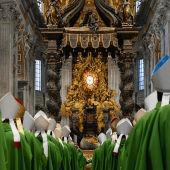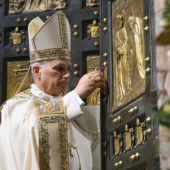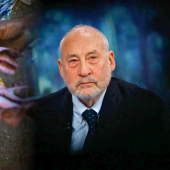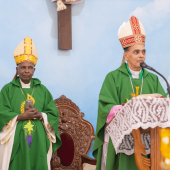China-Vatican agreement marks new milestone with civil recognition of two more Catholic prelates
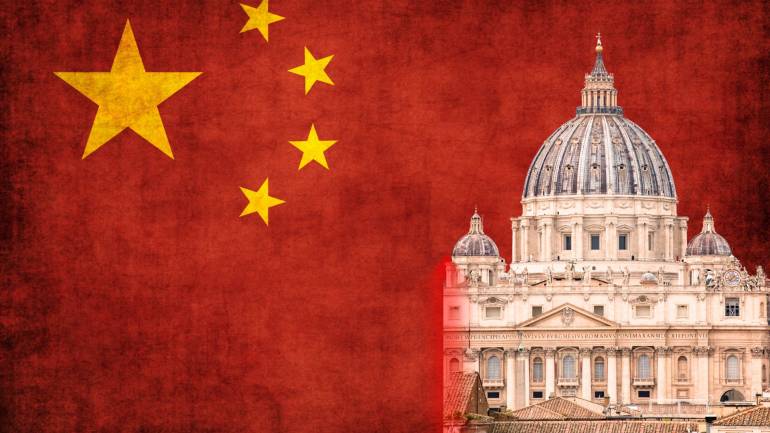
The provisional agreement between the Chinese government and the Holy See has reached a new milestone as two more bishops appointed by the pope receive civil recognition.
In a declaration from the Holy See Press Office dated on September 12, the Vatican expressed its joy as Zhangjiakou Auxiliary Bishop Joseph Ma Yan’en and Xuanhua Emeritus Bishop Augustine Cui Tai received official recognition from the Chinese government.
“These events, the result of dialogue between the Holy See and the Chinese authorities, constitute a significant step forward in the journey of communion of the new diocese,” said the Holy See.
The 2019 agreement between China and the Vatican, called the Sino-Vatican deal, aims to bridge the gap between the Catholic Church and the Chinese government, which demanded an exclusive right to name their own bishop.
Although the details of the deal were never publicized, it offered leeway to the state-controlled church to have a say in Church leadership appointments. The late Pope Francis nevertheless retained the power to veto candidates.
Prior to his current appointment, Bishop Joseph Ma Yan’en had been serving as the bishop of the Diocese of Xiwanzi, which Pope Leo XIV suppressed in July to establish the new Diocese of Zhangjiakou.
China already created their own Diocese of Zhangjiakou in 1980, but without approval from the Holy See.
With the Vatican formally recognizing this ecclesiastical territory, it has given way to the appointment of a bishop fully recognized by both parties.
Father Joseph Wang Zhengu was consecrated on September 10 as its first-ever bishop.
Meanwhile, the Chinese government also recognized Bishop Emeritus Augustine Cui Tai despite being retired from shepherding the Diocese of Xuanhua, which was also suppressed alongside Xiwanzi upon the creation of the new Diocese of Zhangjiakou.
Bishop Cui Tai had been subject to harassment because of his affiliation with the “underground” Catholic Church. In April 2021, he was placed in indefinite detention for the fourth time since the signing of the China-Vatican agreement.
His civil approval is seen as a “reciprocal gesture” by the Chinese government for the Holy See’s recognition of the Diocese of Zhangjiakou.
Radio Veritas Asia (RVA), a media platform of the Catholic Church, aims to share Christ. RVA started in 1969 as a continental Catholic radio station to serve Asian countries in their respective local language, thus earning the tag “the Voice of Asian Christianity.” Responding to the emerging context, RVA embraced media platforms to connect with the global Asian audience via its 21 language websites and various social media platforms.









